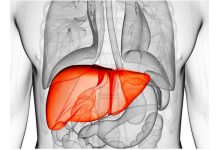Africa-Press – South-Africa. Attacks on paramedics, human resource shortages, service delivery protests and areas that are so dangerous that ambulances require police escort significantly impact the response times of first responders.
This was revealed on Thursday by Gauteng Health MEC Nomantu Nkomo-Ralehoko in a written reply to the provincial legislature.
She was responding to the DA’s questions on current response times for critically ill people who require urgent medical attention in Gauteng.
According to Nkomo-Ralehoko, ambulances respond to only 56% of calls from the critically ill within 30 minutes in Gauteng’s urban areas.
She said the worst response rate was Ekurhuleni, where only 46% of life-threatening emergency calls were responded to within 30 minutes.
The response rate was 52% in Johannesburg, 72% in Tshwane, 62% in Sedibeng and 63% in the West Rand.
Nkomo-Ralehoko said there was an increased demand for emergency medical services (EMS) in the province due to its increasing population.
According to a survey conducted by the SA Medical Association, paramedics are mainly attacked by criminals seeking to rob them of their personal belongings and work gear.
Nkomo-Ralehoko said: “Service delivery protests [as well as] infrastructure and footprint limitations are some of the contributing factors [to poor response times]. There is also the challenge of hot zones where ambulances must start at the police station for escort, which prolongs the response time if there are no police response vehicles available.
“Attacks on paramedics affect operational capacity due to psychological injuries that prolong the return to operational duties [of the victims],” she said.
Last month, two EMS personnel were attacked while responding to a call in Nellmapius, Pretoria. The crew were hijacked, kidnapped, assaulted and robbed of their cellphones and gear while responding to a distress call.
The Gauteng Health Department said the paramedics were taken to a shack in the bushes, where they were assaulted and tied up. The assailants drove away with the ambulance. The paramedics managed to escape to the nearby Mavuso squatter camp and called for help.
Nkomo-Ralehoko said the department was working on strategies to improve priority 1 response times – for critically ill or injured persons who require urgent care – to under 30 minutes in urban areas and 69 minutes in rural areas.
She said Gauteng was looking to invest in smart technologies to improve response times.
She added:
Meanwhile, DA Gauteng Health spokesperson Jack Bloom said the international standard was 80% response within 15 minutes for priority 1 calls.
“The department no longer measures this high standard. They said they don’t collect this data following the revision and implementation of the 2020 National Indicator Data Set [– a minimum group of indicators introduced by the National Department of Health that every public health facility is expected to collect, use and report on].
“I agree with using new technology, but the reality is that EMS is plagued by mismanagement and corruption that needs to be fixed to speed up response times to emergency cases,” Bloom said.
In 2020 the Gauteng government took over providing ambulance services from various municipalities. Bloom said this move had resulted in worse response times.
“There was better service when city ambulances were operating,” he said.
For More News And Analysis About South-Africa Follow Africa-Press






